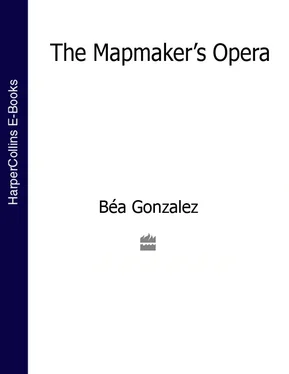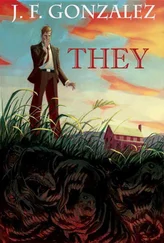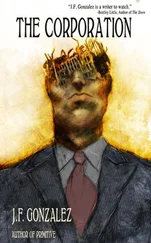1 ...6 7 8 10 11 12 ...16 When we think of Mónica on that bench—a cool spot to hide from the punishment of a too hot sun, a stone chair for a heart that is growing colder and wiser in equal time—it is the seguiriya we hear in the background. It is a song of despair never abandoned by the strumming of a guitar, a song awash in black tones and deep feeling, a song sung for all the dreams we had for ourselves, our hopes and expectations for a life that never delivered on its promise, that took our adolescent dreams and squashed them like a hammer beating on an overripe pear.
They married in the end, no one as happy with the outcome as the surprised, then relieved, and finally, indifferent Don Ricardo, who promptly forgot the whole affair until he was compelled to remember it many years later by a force of hand and a twist of fate.
We have always wondered about Don Ricardo, about men like him. Was he just a simple womanizer or a man more complicated than the details of his life can hope to reveal?
But history is like that. As hard to interpret as a map created by a culture whose traditions and mindset you know nothing about. It leaves only outcomes in its wake and very rarely evidence of the true feelings and motivations of those in whose hands events unfolded and whose actions had a role in shaping our destinies into what they are.
There was one victim who emerged seething from the marriage of Emilio and Mónica—Remedios, Emilio’s Mass-mad mother. Bad enough to have lost her one chance at immortality, her one opportunity to have endless prayers said on her behalf, ensuring her prompt escape from the pit of purgatory into the glory of heaven guarded by St. Peter and his haloed help. Infinitely worse was the fact that her son, the seminarian, had impregnated a nobody from La Mancha, had been forced to make the girl his wife.
She never forgave him. Never saw her grandson who, as we know, was not her grandson in any case. She lived for many years after that, in decent health and in want of nothing, her outrage at her son’s betrayal providing ample fuel to keep her going well past her allotted days.
SCENE FOUR
Inside a bookstore on the Calle San Vicente
Let us turn now to the maps of our childhoods. Therein we find the coordinates of happiness and loss, of innocence and half-remembered dreams. There, too, is the taste of the madeleine and the ever-present promise that hangs, forever suspended in mid-air. Intense sunsets, first-love and heartbreak, moments lived as if all subsequent ones are destined never to pass. The past merges into the present; the present subsumes into dreams of the future; the future is too nebulous and distant to be of use. Childhood is a dreamlike state, a vibrant map—and for too many lost souls, it is a lifelong curse.
Diego García Clemente, born on a warm Christmas Day, was blessed with a happy early childhood, at least. When Emilio married Mónica, he accepted not only her, but also her son, fully into his heart. “Only saints are born on Christmas Day,” he said to Mónica. “Jesus, the boy Segundo, who once minded my mother’s stables and was as good as freshly baked bread, and our own child, Diego.”
Alas, Abuela, although you wished it otherwise, there would be no other portents that they were witnesses to a momentous birth. No wise men appeared; the trees in Seville did not suddenly burst into bloom; no star shone brightly in the East.
They would have other children, Mónica and Emilio, but all would fail to survive past the early few months—victims of premature birth, disease or, as Mónica liked to put it, “of being wise to what the world would deliver and choosing to abandon it quickly.” Despite Emilio’s kindness, his generosity and his unconditional acceptance of Don Ricardo’s bastard son, Mónica would never fully abandon her dream of reuniting with the Don himself, would never fully accept that this little life she had stumbled upon was the one she deserved and not punishment for having dared to dream. And this thought, insidious but deeply held, hardened her against what others in her position might have interpreted as her supreme good luck.
Instead, she retreated to that spot on her map that marked her past, only to be held captive there by the many if-onlys and the countless could-have-beens. Thus, her days as a convent girl, those days she had once decried for their brutality—the good sisters had taught her well but often with the backs of their hands—seen now from a vantage point skewed by regret, became her glory days, days of fresh air and the smell of the azafrán, and her present life in Seville, the city she had once loved, was now the jail that had, through force of circumstance, become her home.
So it was that she transformed the quiet town of her birth into a shrine, the boredom of the long days and the hard work harvesting the saffron forgotten in the wake of the blow that life had delivered her. Instead, what was now remembered was the town as it appeared on one day a year, dressed in its finest vestments to celebrate the festival of its patron saint, Saint Agatha, when the women congregated at the baker’s house to cook and talk, their efforts infusing the town with the seductive smells of freshly baked cake.
So it is with the past—a state, a place the great St. Augustine spoke of as a spacious palace—a vast, immeasurable sanctuary. Who really can plumb its depths?
Emilio was not held captive to his past in the least. On the contrary, his love for Mónica had armed him with the courage to embark upon a new life and he did so with relish and without regret. His Uncle Alfonso, owner of a bookstore in the Calle San Vicente, provided him with employment inside his shop, a shop visited increasingly by English travellers who wanted to learn more about Spain. They appreciated being guided by Emilio, whose English was respectable and whose enthusiasm for their own writers flattered and convinced them that they were being served by the very best.
By the time little Diego was one, he was spending most of the day inside the shop—the Librería Alfonso—hiding among the books, a happy prisoner of dust and ticks, mesmerized by the feel of heavy paper, the smell of glue and ink. There he would be taught how to read, first in Spanish and then, under the spell of Emilio’s enthusiasms, in English, as it appeared in the poems of the Romantics. His knowledge of English was forever coloured with elegies and odes, things less useful than they were beautiful, and he came to share Emilio’s belief that English was the language not of progress, as its native speakers believed, but the language of beauty and of life itself.
Uncle Alfonso, a lifelong bachelor and a man of many ill moods, never ceased to complain about the child. “There he is again, the scamp, eating the books,” he would accuse, pointing a shaky finger his way. Emilio would respond by laughing and removing little Diego from the scene of the crime, bits of paper hanging still from the edges of his tiny mouth, screaming at the indignity of being moved until he could crawl back to his spot and resume his meal of words and rhymes.
In his more impatient moments, Uncle Alfonso would try to move the boy with the end of a broom, poking at him until Diego’s screams filled the store and Emilio appeared to rescue him from the old man. But eventually Diego came to view the episodes with the broom as a game and, growing stronger as his aged great-uncle grew weaker, he would pull it from the old man’s hands and swat it back at him until Alfonso’s curses drained the store of all the fine poetry lodged inside.
“The boy belongs with his mother,” he would tell Emilio, who would nod but keep Diego close by his side because there was always something amiss with Mónica. She was either weak because she was pregnant, mourning a dead baby when she was not, and with no energy whatsoever in-between all the births and all the deaths. It was all she could do to keep the house in a semblance of order and cook the occasional meal.
Читать дальше












